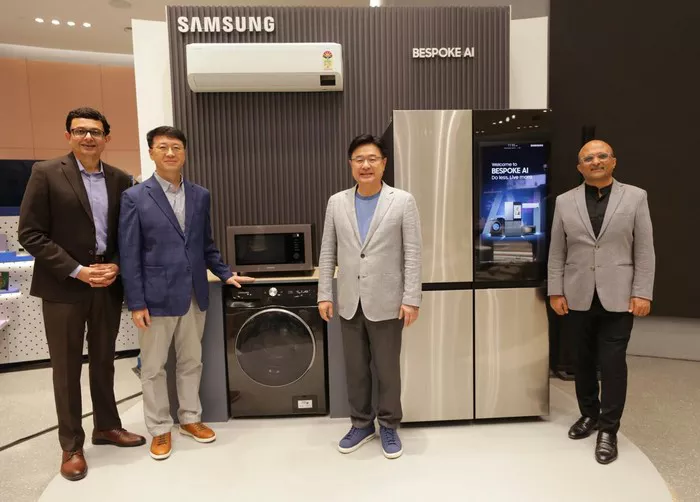Samsung is advancing its vision for smarter homes with the launch of its Bespoke AI ecosystem, designed to extend artificial intelligence (AI) into more appliances beyond smartphones. At the heart of the portfolio are three key elements: Bixby, Samsung’s AI assistant; the SmartThings app for device management; and the Tizen operating system, which integrates security layers such as Knox Matrix and Knox Vault. The company is focusing on localizing its offerings to better serve diverse global markets, with a particular emphasis on India.
Initially launched in 2017, Bixby has become an integral part of Samsung’s AI ecosystem, particularly in its expanding smart home and appliance range. While the assistant took a backseat in recent Galaxy smartphones with Google Gemini’s deep integration, Bixby is now finding new relevance in Samsung’s home appliances.
“Unlike third-party solutions, Bixby is our own platform based on large language models (LLMs), which gives us the unique ability to control devices more intuitively,” said Deokho Kim, Vice President and Head of SW Group at Samsung.
With its Bespoke AI lineup, Samsung is integrating advanced AI features into products such as the Family Hub refrigerators and Wind-Free air conditioners. These devices are designed to go beyond basic voice commands, responding to natural language and user behaviors. For example, users can tell the Bespoke AI WindFree AC that they are feeling hot, prompting the device to adjust the temperature accordingly. This personalized control is already available in Korea and will soon expand to other regions.
Samsung’s AI strategy in India, the third-largest market for smart appliances, is particularly focused on accessibility and affordability. The company reports a 39% increase in registered devices on SmartThings in 2024, with approximately 23 million users in India alone. To cater to price-sensitive consumers, Samsung has developed a lower-spec version of Tizen OS called Tizen Lite, which powers mid-range appliances without screens while still supporting Bixby and other smart features.
Samsung is also tailoring its AI solutions specifically for the Indian market. The Family Hub refrigerator, which features a large 32-inch screen and AI Vision technology, can now suggest recipes based on available ingredients and even function as a Wi-Fi range extender. In addition to English, the fridge will soon support nine regional languages, including Hindi, Bengali, Tamil, and Telugu.
One of the standout features for Indian users is the Home Care Plus service, which helps troubleshoot appliance issues. With a simple click in the SmartThings app, customers can send device details to a service center for quick resolution.
Samsung’s smart air conditioners are also getting a local upgrade. In India, these units will now sync with ceiling fans, automatically adjusting the cooling based on the fan’s effects. This means users won’t have to manually adjust the AC or fan settings, providing a seamless experience.
Localizing AI technologies like Bixby is a key priority for Samsung. The company is developing a Hindi version of Bixby and recently launched a “Hinglish” version, reflecting the mix of English and Hindi commonly used in everyday conversation.
Samsung’s goal is for AI-powered products to account for 70% of its appliance sales in India. With a broad range of products at various price points, Samsung aims to make AI technology accessible to a larger number of consumers. The WindFree air conditioners start at ₹43,990, while the Bespoke AI refrigerators begin at ₹46,990—offering a model of affordability that mirrors the success of Samsung’s Galaxy smartphones.
As Samsung continues to refine its AI and smart home strategies, the company’s focus on localization and affordability will be key to driving the adoption of its innovative appliances across diverse global markets.
Related topics:

